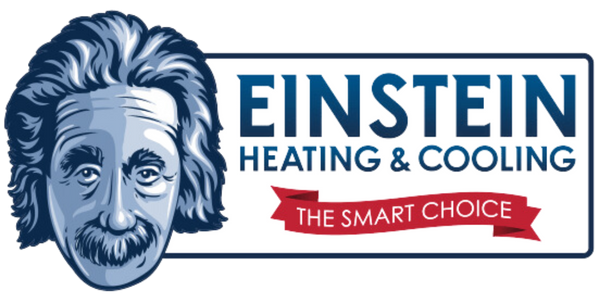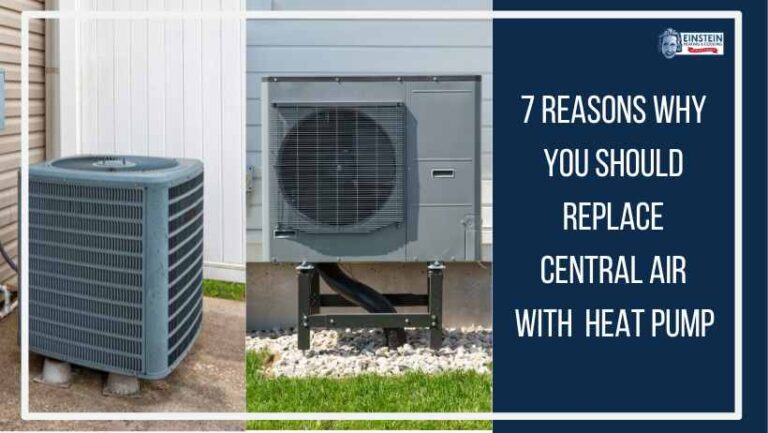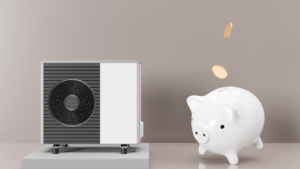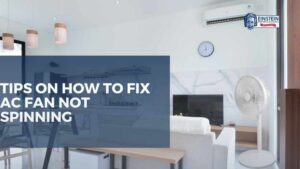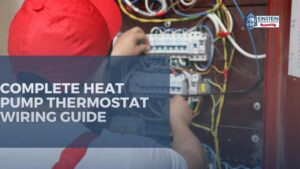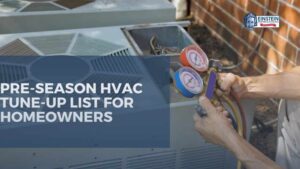When contemplating the optimal heating and cooling system for your Bend home, the decision between traditional central air conditioning and a heat pump demands careful consideration. In this blog article, we delve into aspects explaining why choosing to replace central air with heat pump is a choice you need to have carefully decided on. Additionally, we provide a comprehensive step-by-step guide on seamlessly transitioning between the two systems.
Reasons to Replace Central Air with Heat Pump
1. Environmental Impact
Lower Carbon Emissions
Heat pumps contribute to a lower carbon footprint compared to traditional central air systems. By utilizing renewable energy sources such as air, water, or geothermal heat, heat pumps significantly decrease greenhouse gas emissions associated with home heating and cooling, aligning with global efforts to combat climate change.
Ozone-Friendly Refrigerants
Modern heat pumps prioritize environmental stewardship by using ozone-friendly refrigerants. In contrast, some older central air conditioning systems employ refrigerants that pose risks to the ozone layer. The shift to heat pumps represents a commitment to environmentally conscious technology and responsible HVAC practices.
2. Consistent Comfort
Balanced Heating and Cooling
Heat pumps excel in providing balanced heating and cooling throughout a home, eliminating the discomfort of hot and cold spots commonly associated with traditional central air systems. The consistent temperature control contributes to a more enjoyable living environment for residents.
Humidity Control
Superior humidity control is another advantage of heat pumps. During the cooling mode, heat pumps efficiently dehumidify indoor air, preventing the growth of mold and mildew. This feature is particularly beneficial in humid climates, enhancing both comfort and indoor air quality.
3. Energy Efficiency
Cost-effective Operation
Heat pumps are cost-effective, rooted in their ability to transfer heat instead of generating it. Traditional central air conditioners rely on energy-intensive processes to cool the air, while heat pumps leverage existing heat sources, resulting in lower energy consumption and decreased operational costs.
Dual Functionality
One of the primary attractions of heat pumps is their dual functionality, serving as both heating and cooling systems. This eliminates the need for separate appliances, streamlining energy consumption and offering year-round comfort without the need for constant adjustments or additional equipment.
Reduced Electricity Bills
The energy-efficient nature of heat pumps directly translates into reduced electricity bills for homeowners. By harnessing ambient air or ground temperature, heat pumps demand less electricity to maintain desired indoor temperatures. This not only translates to noticeable savings but also aligns with sustainable living practices.
4. Long-Term Savings
Reduced Maintenance Costs
Heat pumps generally require less maintenance compared to traditional central air systems. The simplicity of their design, coupled with the absence of combustion processes, results in fewer breakdowns and repairs. This translates into reduced long-term maintenance costs and increased cost-effectiveness.
Extended Lifespan
Investing in a heat pump often means investing in longevity. With proper maintenance and care, a heat pump can provide reliable heating and cooling for 15 to 20 years. This extended lifespan not only ensures consistent performance but also reduces the environmental impact associated with frequent equipment replacements.
5. Government Incentives and Rebates
Financial Incentives
Many governments offer financial incentives and rebates to encourage the adoption of energy-efficient technologies. By replacing central air with a heat pump, homeowners may qualify for such incentives, making the transition more financially attractive and accessible.
Environmental Stewardship
Regions that prioritize environmental conservation often provide incentives for eco-friendly home improvements. Heat pumps align with these initiatives, making homeowners eligible for additional benefits while contributing to broader environmental goals.
6. Increased Home Value
Enhanced Property Appraisal
Thinking about heat pump vs central air? Replacing central air with a heat pump can enhance the overall appraisal value of your property. Prospective buyers increasingly value energy-efficient and eco-friendly features, making a heat pump a compelling asset that sets your home apart in the real estate market.
Market Demand for Energy Efficiency
As environmental awareness grows, homebuyers are actively seeking residences equipped with energy-efficient technologies. Installing a heat pump positions your home as a modern, environmentally responsible property, appealing to a broad market and potentially reducing the time your home spends on the market.
7. Quiet Operation
Noise Reduction
Heat pumps are known for their quiet operation, providing an unobtrusive and peaceful indoor environment. Unlike some central air systems that can produce noticeable noise, especially when the compressor kicks in, heat pumps operate quietly, ensuring minimal disruption to daily activities and a tranquil living space.
Enhanced Comfort Without Noise Disturbances
The quiet operation of heat pumps contributes to enhanced comfort. Homeowners can enjoy a consistently comfortable temperature without the disturbances caused by the sudden, loud cycles of a traditional central air system. This factor is particularly valuable in bedrooms, living rooms, and other areas where a peaceful atmosphere is essential.
How to Replace Central Air with a Heat Pump
1. Conduct a Home Energy Audit
Assess Existing HVAC System
Replacing central air unit with a heat pump can be difficult. Before embarking on the transition, conduct a comprehensive assessment of the current central air system. Consider factors such as its age, condition, and efficiency to determine if a heat pump is a suitable replacement and if any additional modifications are necessary.
Evaluate Insulation and Sealing
Evaluate the insulation and sealing of your home to ensure optimal energy efficiency. Improving insulation and addressing air leaks will enhance the performance of the heat pump, leading to greater energy savings and overall effectiveness.
2. Choose the Right Heat Pump System
Air-Source vs. Ground-Source
Selecting the right type of heat pump is crucial. Air-source heat pumps extract heat from the air, while ground-source (geothermal) heat pumps harness heat from the ground. Consider climate, available space, and budget when making this decision for an informed and suitable choice.
Sizing and Capacity
Ensure the heat pump’s capacity matches the heating and cooling requirements of your home. Consulting with a professional HVAC technician can help determine the appropriate size, ensuring optimal performance and energy efficiency.
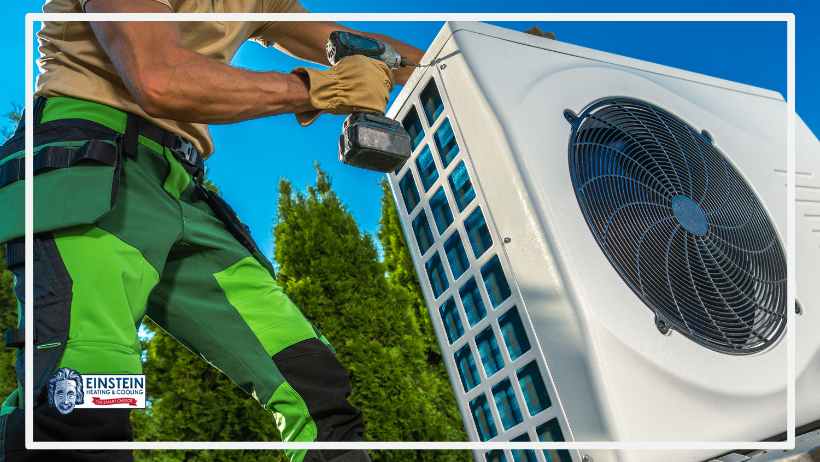
3. Professional Installation
Hire Certified HVAC Contractors
Given the intricacies of HVAC systems, hiring certified and experienced HVAC technicians is essential for a successful installation. Professionals ensure the heat pump integrates seamlessly into your existing home infrastructure, guaranteeing optimal performance and long-term reliability.
Obtain Necessary Permits
Check local regulations to determine if permits are required for the installation of a heat pump. Compliance with building codes is crucial to avoid legal complications and ensures the safety, efficiency, and longevity of the new system.
4. Remove or Decommission Central Air Components
Disconnection and Removal
After the heat pump installation, disconnect and remove components associated with the central air system, including the compressor, air handler, and ductwork. Proper disposal or recycling of these components is essential for environmental responsibility.
5. System Integration and Testing
Integration with Existing Infrastructure
Ensure seamless integration of the heat pump with your home’s existing infrastructure, including ductwork and thermostat controls. Proper integration guarantees efficient operation and consistent performance throughout the entire home.
Testing and Calibration
Conduct thorough testing and calibration of the heat pump system to verify its functionality in both heating and cooling modes. Promptly address any issues to avoid performance problems and ensure the system operates reliably over the long term.
6. Regular Maintenance and Monitoring
Scheduled Maintenance
Implement a regular heat pump maintenance schedule, including tasks such as filter replacement, cleaning coils, and checking refrigerant levels. Routine maintenance enhances efficiency and prolongs the lifespan of the system, ensuring continued reliability.
Monitoring Energy Consumption
Regularly monitor energy consumption to ensure the heat pump continues to operate at peak efficiency. Any sudden spikes or anomalies should prompt a professional inspection to identify and address potential issues promptly.
How much does a central air replacement cost?
It’s crucial for homeowners to have a clear understanding of these considerations to make an informed decision especially if you’re asking yourself: “can I replace my central air with a heat pump?” Below is an estimated breakdown of the costs associated with replacing central air with a heat pump:
1. Heat Pump Unit Costs
The primary expense involves the purchase of the heat pump unit itself. The cost can vary based on factors such as the type of heat pump (air-source or ground-source), brand, capacity, and additional features. On average, homeowners can expect to invest anywhere from $2,500 to $7,500 for the unit alone. High-efficiency models with advanced features may fall on the higher end of this spectrum.
2. Installation Expenses
Professional installation is a critical aspect of the process, ensuring the heat pump integrates seamlessly with the existing HVAC system. Installation costs typically range from $1,500 to $5,000, contingent on factors like the complexity of the installation, labor charges, and any necessary modifications to the home’s infrastructure.
3. Ductwork Modifications or Replacements
If the existing ductwork is incompatible with the new heat pump system, modifications or replacements may be necessary. Costs for ductwork alterations can vary but generally fall within the range of $1,000 to $5,000, depending on the extent of the changes needed.
4. Electrical Upgrades
Heat pumps may require specific electrical upgrades to accommodate their power requirements. This could include installing a dedicated circuit, upgrading the electrical panel, or addressing any wiring issues. Electrical upgrades can add an additional $500 to $3,000 to the overall cost.
5. Thermostat and Controls
Upgrading the thermostat and controls to ensure compatibility with the new heat pump is advisable. Smart thermostats designed for heat pump systems may be a worthwhile investment, adding approximately $200 to $500 to the total cost.
6. Permitting and Inspection Fees
Local regulations often require permits for HVAC system replacements. Permit fees can range from $100 to $500, depending on the region. Additionally, some areas may require post-installation inspections, incurring additional costs.
7. Additional Considerations
Other potential expenses may include landscaping adjustments if an outdoor unit is installed, as well as disposal fees for removing the old central air components. These costs can vary and should be factored into the overall budget.
Total Estimated Cost
Taking these factors into account, the total estimated cost for replacing central air with a heat pump typically ranges from $5,000 to $20,000. It’s important to note that these figures are general estimates, and actual costs can vary based on individual circumstances, geographic location, and specific project requirements.
Conclusion
Making the switch from central air to a heat pump is a strategic decision that offers a myriad of benefits, ranging from energy efficiency to environmental sustainability. The financial savings, consistent comfort, and long-term viability of heat pumps make them an attractive choice for homeowners seeking to upgrade their HVAC systems.
By following the outlined steps for making the switch and getting certified technicians from Einstein Heating and Cooling, Bend homeowners can enjoy the advantages of heat pumps while contributing to a greener and more sustainable future. Consider the energy-efficient and versatile heat pump as the next step in enhancing your home’s comfort and reducing its environmental impact.
